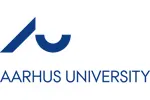

| The award | How you will study | Study duration | Course start | Domestic course fees | International course fees |
|---|---|---|---|---|---|
| MSc | Full-time | 4 semester | September, February | 0 | EUR 0 per year |
A fusion of biology, statistics, and computer science, the MSc in Bioinformatics programme explores the development and application of computational solutions for analysing and handling biological and biomedical data. A successful bioinformatics solution combines theoretical and practical knowledge from several areas of science, including biology, statistics, and computer science - a network of competencies that students will acquire through this programme.
FINDING SOLUTIONS
The field of bioinformatics plays a key role in modern biology and biomedicine, fields in which collecting and analysing large data sets is essential. To address the challenges of big data in modern biology and biomedicine, a bioinformatician must combine practical and theoretical skills in statistical modelling and computer programming with a deep knowledge of biology and biomedicine. This programme gives students these skill-sets.
Teaching is greatly influenced by the innovative bioinformatics research taking place at Aarhus University, where all lecturers are also active researchers. AU has strong research groups within many areas of bioinformatics, including evolutionary bioinformatics (the study of how and in what way genomes or hereditary material in organisms develop over the course of time) and medical bioinformatics (the study of the correlations between diseases and genetic factors).
The bioinformatics programme at AU is based at the Bioinformatics Research Centre (BiRC), which focuses on the challenges involved in large-scale genomics and population genetics, including statistical modelling, algorithmic development, machine learning, and high-performance computing.
STUDENT LIFE
Bioinformatics students are affiliated with the Bioinformatics Research Centre, a vibrant community with lots of regular academic and social activities for both students and staff. Students meet their peers from the other AU science programmes through joint lectures, and participate in activities with students from programmes such as biology or computer science. A number of student organisations also arrange academic activities, as well as excursions, celebrations, and social get-togethers.
CAREERS
Graduates with a Master's in Bioinformatics are equipped not only to work as bioinformatics specialists in the biotechnology industry, but also in additional areas in which computational skills in analysing large amounts of data are essential. They are also in demand among employers in the IT industry as potential software developers.
All EU/EEA/Swiss citizens are exempt from payment of tuition fees.
In general, admission to a Master’s degree programme requires successful completion of a relevant and recognised university degree equivalent to a Danish Bachelor’s degree in level and length (180 ECTS). All applications must also fulfil the English language requirements.
Find more information about the admission requirements, application procedure and deadlines at Aarhus University.
In addition, you must meet the specific requirements for the Bioinformatics programme, which can be found on the Bioinformatics study programme page.
Below are some suggested courses at other providers that you may also be interested in:
Digital International Relations & Diplomacy (UNITAR) Master Degree
EU Business School, Geneva
Find out moreIf you do not meet the entry requirements for this course then consider one of these postgraduate preparation courses from another institution:
Graduate Diploma of Engineering (Civil: Structural)
Engineering Institute of Technology
Find out moreThere are 56 other courses listed from Aarhus University. A selection of these are displayed below:
Find out more about studying in Denmark